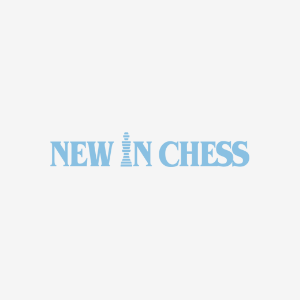The Inner Game Of Chess Pdf Free

The Mysticism Of Hamzah Fansuri Pdf Printer. Every player has heard the saying, 'Chess is 99 percent tactics.' It's 99 percent calculation. But until now there has never been a book devoted entirely to this most mysterious and essential chess technique.
This book examines both the technical and practical aspects of how to think ahead -- the selection of candidate moves, the evaluation of end positions, findin Every player has heard the saying, 'Chess is 99 percent tactics.' It's 99 percent calculation. But until now there has never been a book devoted entirely to this most mysterious and essential chess technique. This book examines both the technical and practical aspects of how to think ahead -- the selection of candidate moves, the evaluation of end positions, finding the proper move order, and the like. Special attention is paid to the broad range of calculating mistakes, such as overlooked zwischenzugs and 'quiet moves,' visualization blunders, and 'believing' your opponent.
Trate real aspects of the behavior of people who confront Inner Game issues. Inner Game Effectiveness Through 195. Management Development. Annotated Bibliography 212. Understanding the. The game of chess involves two players who attempt to capture the opponent's pieces with.

Executive Summary Reprint: R0707J Popular lore tells us that genius is born, not made. Scientific research, on the other hand, reveals that true expertise is mainly the product of years of intense practice and dedicated coaching. Ordinary practice is not enough: To reach elite levels of performance, you need to constantly push yourself beyond your abilities and comfort level. Such discipline is the key to becoming an expert in all domains, including management and leadership. Those are the conclusions reached by Ericsson, a professor of psychology at Florida State University; Prietula, a professor at the Goizueta Business School; and Cokely, a research fellow at the Max Planck Institute for Human Development, who together studied data on the behavior of experts, gathered by more than 100 scientists. What consistently distinguished elite surgeons, chess players, writers, athletes, pianists, and other experts was the habit of engaging in “deliberate” practice—a sustained focus on tasks that they couldn’t do before.
Positive emotions have been linked with better health, longer life, and greater well-being in numerous scientific studies. On the other hand, chronic anger. Curling is a sport in which players slide stones on a sheet of ice towards a target area which is segmented into four concentric circles. It is related to bowls.
Experts continually analyzed what they did wrong, adjusted their techniques, and worked arduously to correct their errors. Even such traits as charisma can be developed using this technique. Working with a drama school, the authors created a set of acting exercises for managers that remarkably enhanced executives’ powers of charm and persuasion. Through deliberate practice, leaders can improve their ability to win over their employees, their peers, or their board of directors. The journey to elite performance is not for the impatient or the faint of heart.
It takes at least a decade and requires the guidance of an expert teacher to provide tough, often painful feedback. It also demands would-be experts to develop their “inner coach” and eventually drive their own progress. Consistently and overwhelmingly, the evidence showed that experts are always made, not born. The journey to truly superior performance is neither for the faint of heart nor for the impatient. The development of genuine expertise requires struggle, sacrifice, and honest, often painful self-assessment.
There are no shortcuts. It will take you at least a decade to achieve expertise, and you will need to invest that time wisely, by engaging in “deliberate” practice—practice that focuses on tasks beyond your current level of competence and comfort. You will need a well-informed coach not only to guide you through deliberate practice but also to help you learn how to coach yourself. Above all, if you want to achieve top performance as a manager and a leader, you’ve got to forget the folklore about genius that makes many people think they cannot take a scientific approach to developing expertise. We are here to help you explode those myths.
Let’s begin our story with a little wine. What Is an Expert? In 1976, a fascinating event referred to as the “Judgment of Paris” took place. An English-owned wineshop in Paris organized a blind tasting in which nine French wine experts rated French and California wines—ten whites and ten reds. The results shocked the wine world: California wines received the highest scores from the panel. Even more surprising, during the tasting the experts often mistook the American wines for French wines and vice versa. Two assumptions were challenged that day.